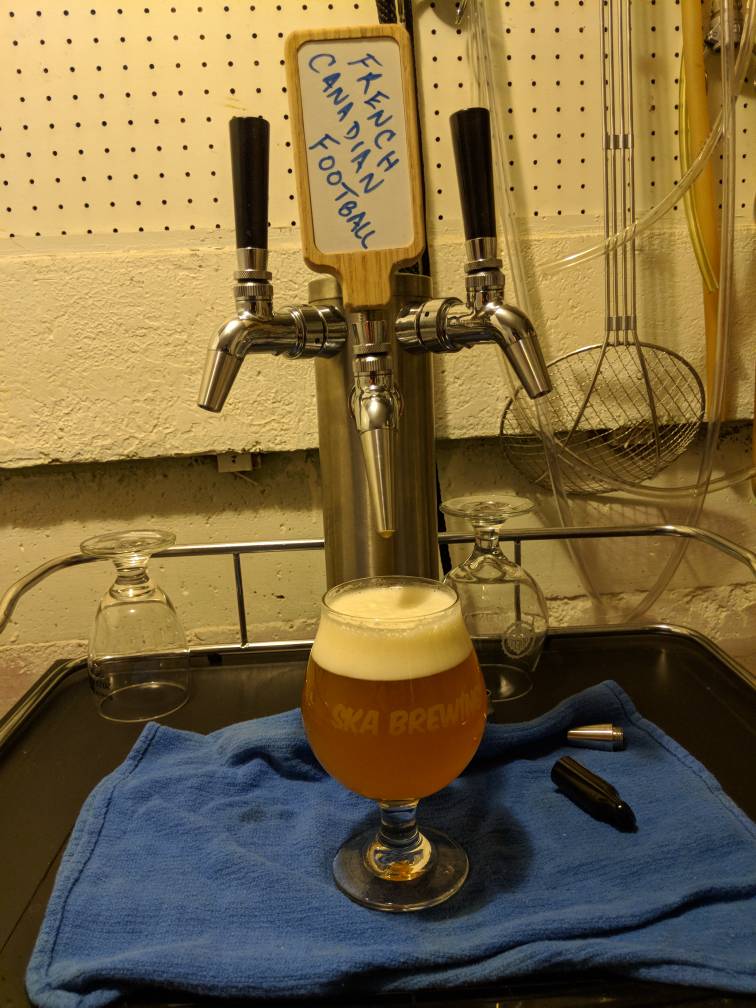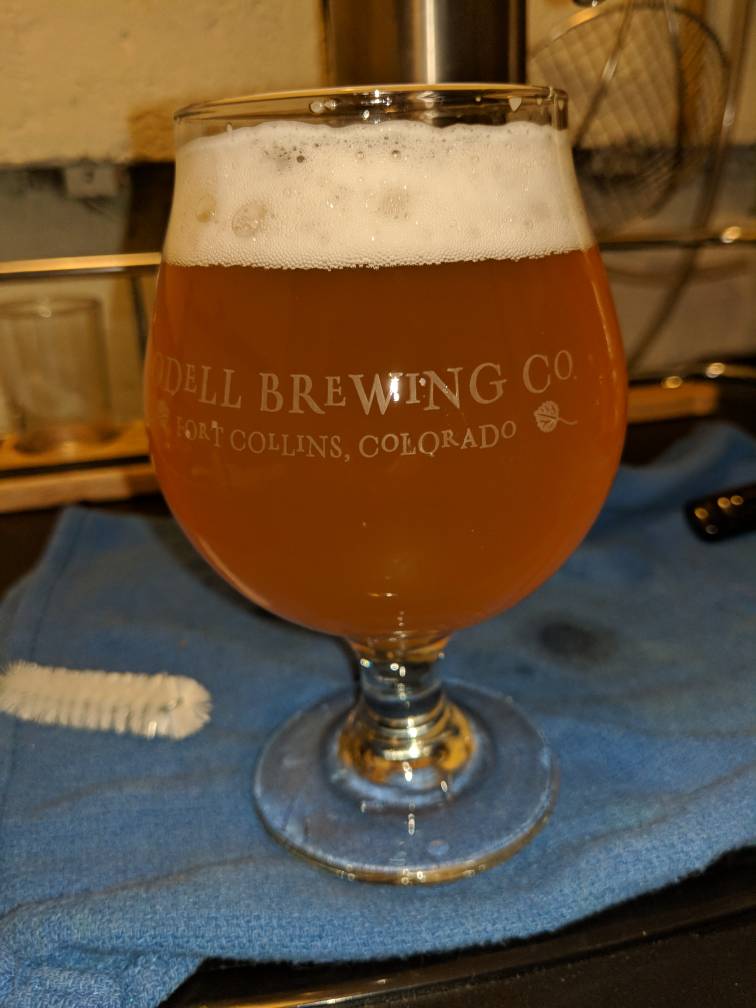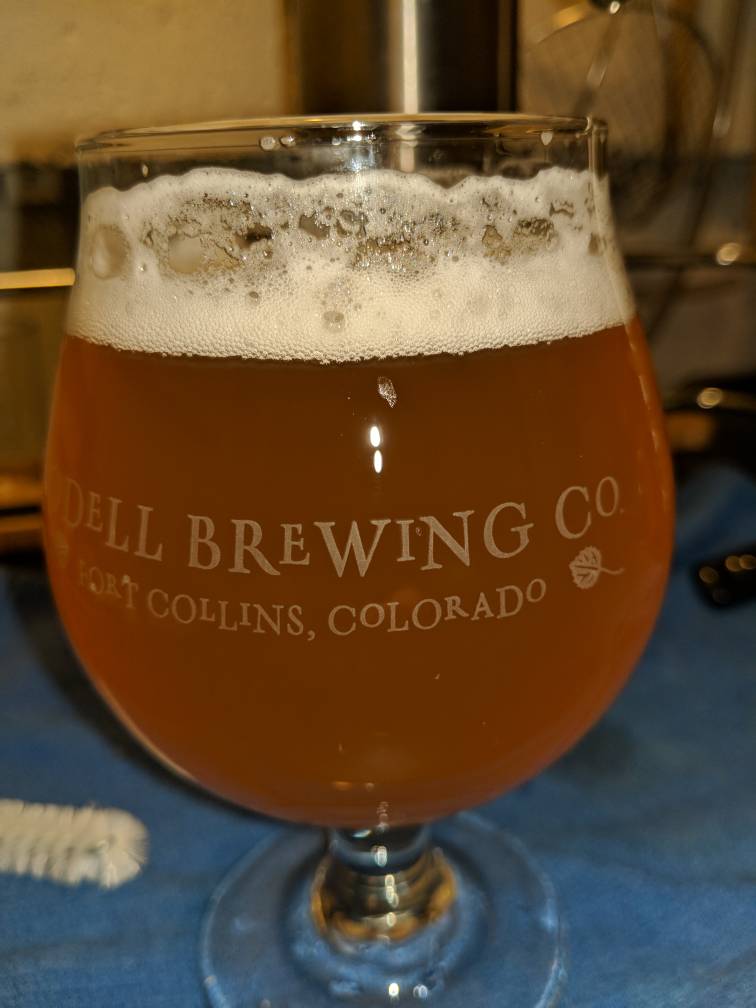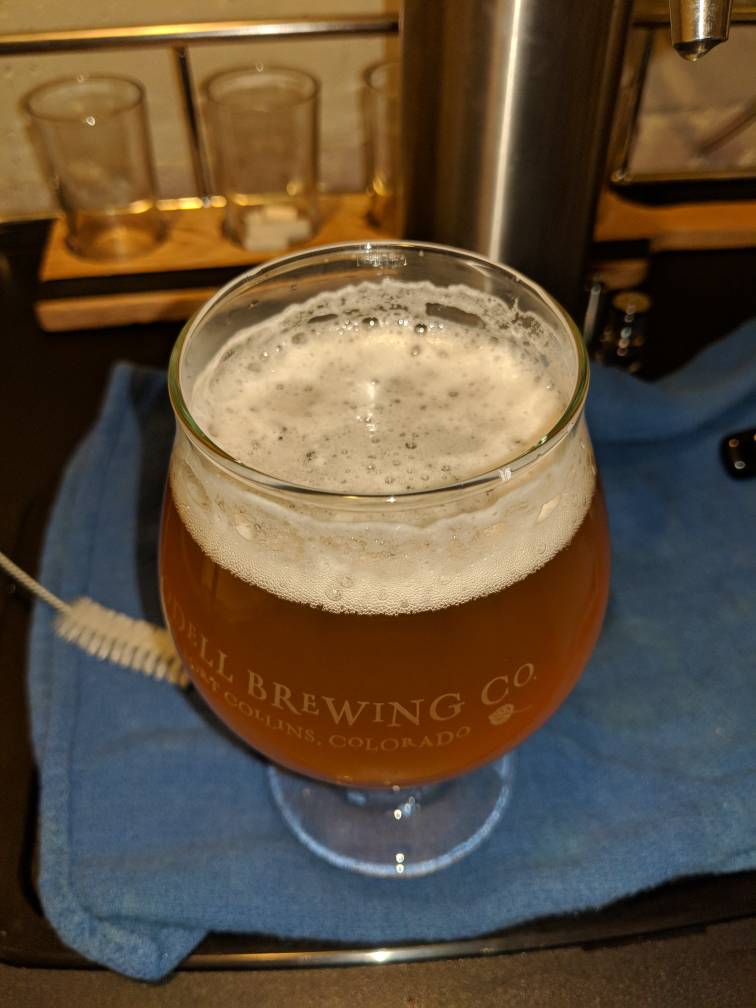TANSTAAFB
Well-Known Member
I brewed a saison, recipe below, and split the 12 gallon batch 3 ways. 1 fermented with WLP644 Saccharomyces Bruxellensis Trois, one with WLP590 French Saison, and one with US-05 as a clean control to get a better idea of what flavors are yeast derived and what is coming from the grist and hops. I get a big beautiful thick white fluffy head that dissipates fairly quickly, leaving nice lacing on the glass and just a very thin head. If I swirl the glass it reforms and dissipates again. So what do I need to do to get the head to stay? Check out the grain bill, I included a ton of oats and wheat that should result in a stable head! Any advice is appreciated.
Water carbon filtered and treated with 1 Campden tablet.
1tsp Calcium chloride
14# 2-row (Colorado Malting Co)
2# white wheat (CMC)
2# Golden naked oats
3# flaked oats
1# biscuit (CMC)
.5# aromatic
.75# acid malt
14g Warrior FWH
28g Celeia whirlpool 30 minutes
42g Nelon Sauvin whirlpool
28g Centennial whirlpool
BIAB mashed at 150°F

Water carbon filtered and treated with 1 Campden tablet.
1tsp Calcium chloride
14# 2-row (Colorado Malting Co)
2# white wheat (CMC)
2# Golden naked oats
3# flaked oats
1# biscuit (CMC)
.5# aromatic
.75# acid malt
14g Warrior FWH
28g Celeia whirlpool 30 minutes
42g Nelon Sauvin whirlpool
28g Centennial whirlpool
BIAB mashed at 150°F









































![Craft A Brew - Safale S-04 Dry Yeast - Fermentis - English Ale Dry Yeast - For English and American Ales and Hard Apple Ciders - Ingredients for Home Brewing - Beer Making Supplies - [1 Pack]](https://m.media-amazon.com/images/I/41fVGNh6JfL._SL500_.jpg)






















